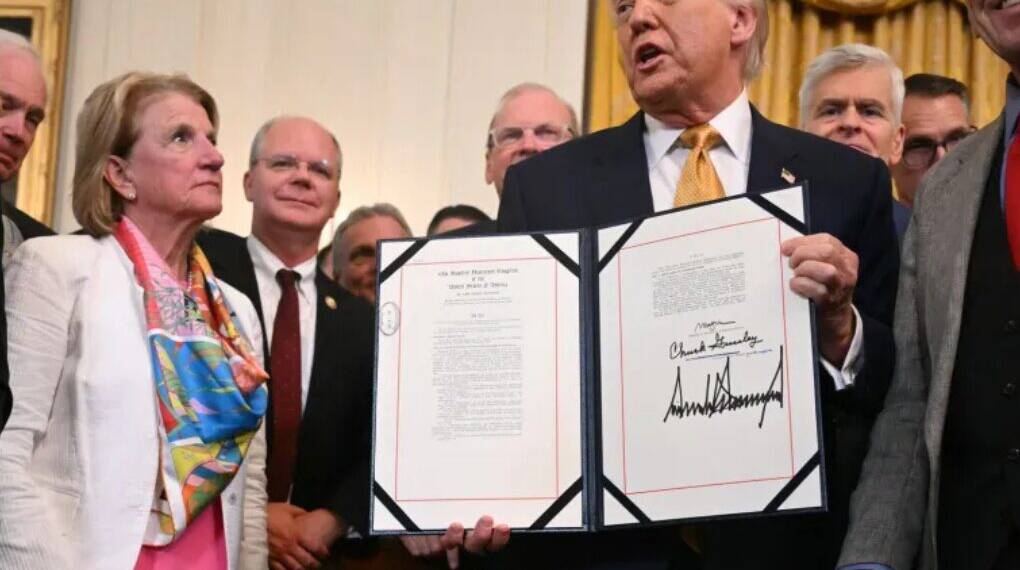On July 16, 2025, US President Donald Trump signed the HALT Fentanyl Act into law, making fentanyl and all its analogues permanent Schedule I substances under the Controlled Substances Act.
This decision framed not only as a domestic public health policy but as a declaration of international intent positions fentanyl at the intersection of law enforcement, China–US relations, and American political rhetoric about the opioid epidemic.
What is the Impact of Schedule I Classification?
By categorizing fentanyl-related substances as Schedule I, the US government rules out any accepted medical use for illicit analogues, subjecting them to the strictest legal controls on par with heroin and LSD. Medical fentanyl, used under prescription, remains available but highly regulated as a Schedule II drug.
The Fentanyl Crisis
Fentanyl is 50–100 times more potent than morphine and has played a leading role in the skyrocketing rate of opioid overdose deaths. Illicitly manufactured fentanyl, entering the US supply via Mexico and often sourced from China, has devastated communities and public services. According to CDC figures, synthetic opioids like fentanyl are implicated in the overwhelming majority of recent overdose deaths.
Trump, while signing the law, addressed the national tragedy: “Today, we strike a righteous blow to the drug dealers, narcotic traffickers, and criminal cartels … and we take a historic step toward justice for every family touched by the fentanyl scourge.”
The China Factor: Tariffs, Death Penalty Demands, and Diplomatic Bargaining
Trump’s campaign to control fentanyl is as much diplomatic as it is criminal-justice-oriented. Emphasizing the global nature of the problem, Trump directly called out China as the main conduit for fentanyl chemicals entering the US, especially through Mexico.
Speaking at the signing, Trump said:
“I have a very good relationship with President Xi of China, but I imposed a 20% tariff on China because of the fentanyl. And I call it a penalty. It’s a penalty because China delivers much of the fentanyl. Some people would say all of it. They deliver it into Mexico and even into our own country.”
He further elaborated that the billions raised by these tariffs were intended to offset damages caused by alleged Chinese trafficking activities. In a new diplomatic twist, Trump revealed his intent to push for a bilateral deal whereby China would impose the death penalty on those producing and trafficking fentanyl for export:
“I think we’re going to work it out so that China is going to end up going from that to giving the death penalty to the people that create this fentanyl and send it into our country, whether it’s through other countries or directly.”
Trump expressed frustration that, in his view, previous administrations had not pursued such punitive measures with China and accused President Biden of abdicating responsibility in the face of the “worst drug crisis in American history.” He cast Biden’s border policy as one that facilitated the mass entry of drugs and traffickers:
“This open borders nightmare flooded our country with fentanyl and with people that shouldn’t be here, some of the worst people on Earth. And illicit drugs decimated American communities and left us with the largest law enforcement challenge in our country’s history.”
There are also heightened tensions with both Canada and Mexico. While Canada insists it’s actively combating drug trafficking and retaliated with tariffs of its own, Trump accuses it of insufficient cooperation.
Mexico, a key transit route for illicit fentanyl, faces heavy US pressure and trade penalties aimed at cracking down on cartels, though it warns that linking trade to drug enforcement risks harming diplomatic relations.
Trump’s hardline approach turns the fentanyl crisis into a wider geopolitical and economic dispute with America’s neighbors
Enforcement and Legal Sanctions
The law enforces harsh new penalties for trafficking in fentanyl and its analogues, with mandatory minimum sentences and limited avenues for legal research on fentanyl analogues outside controlled settings.
While Trump’s stance resonates with communities devastated by the epidemic—particularly Angel Families, whose loved ones were commemorated during the bill signing—critics note that incarceration alone is unlikely to solve a highly adaptive and international crisis.
By leveraging tariffs and calling for the death penalty in Chinese courts, Trump positioned fentanyl as both a domestic emergency and a matter of national dignity and sovereignty. His rhetoric tied domestic American suffering to foreign adversaries and justified tough trade policy as both economic and moral justice:
“We have a 20% [tariff], so they pay billions of dollars and billions of dollars in damages for what they’ve done.”
Trump’s willingness to blend trade, foreign policy, and drug enforcement is consistent with his broader “America First” approach, but it also risks entangling drug policy in diplomatic showdowns and potential escalation.
While the law bans fentanyl analogues “forever” and promises long prison terms for traffickers, experts note that the crisis’s roots are multifactorial—stemming from addiction, socioeconomic problems, porous borders, and globalized trafficking routes. Critics caution that supply-side crackdowns must be matched with expanded treatment, prevention programs, and social support services to address underlying causes.
The Path Forward
The HALT Fentanyl Act, combined with aggressive rhetoric and trade penalties against China, signals a tough, multi-front approach to the opioid crisis under Trump’s leadership.
Its strength lies in sending a clear message of urgency and legal clarity—fentanyl-related substances are now Schedule I drugs, and those who profit from them face severe consequences both in the US and, Trump hopes, abroad.
However, while these initiatives may curb certain trafficking schemes, history suggests that criminalizing suppliers and raising tariffs alone cannot address the societal and health dimensions driving opioid addiction.
For sustained progress, the US will need broader strategies that include health care reform, international cooperation beyond punitive threats, and more timely support for community prevention and addiction treatment.








